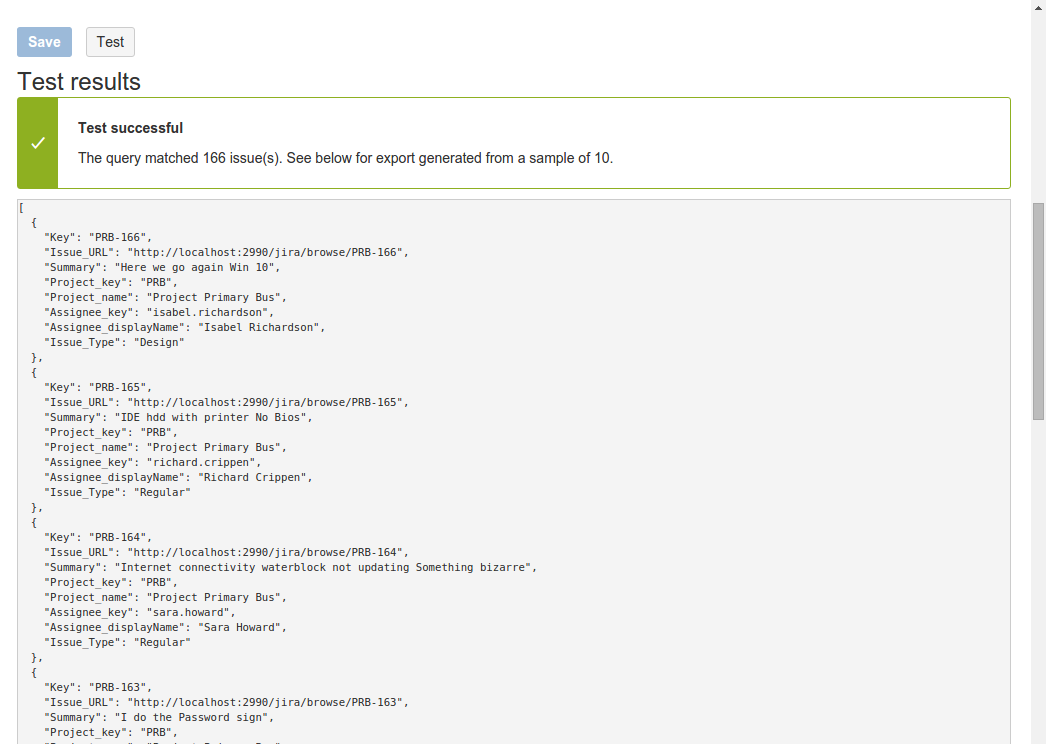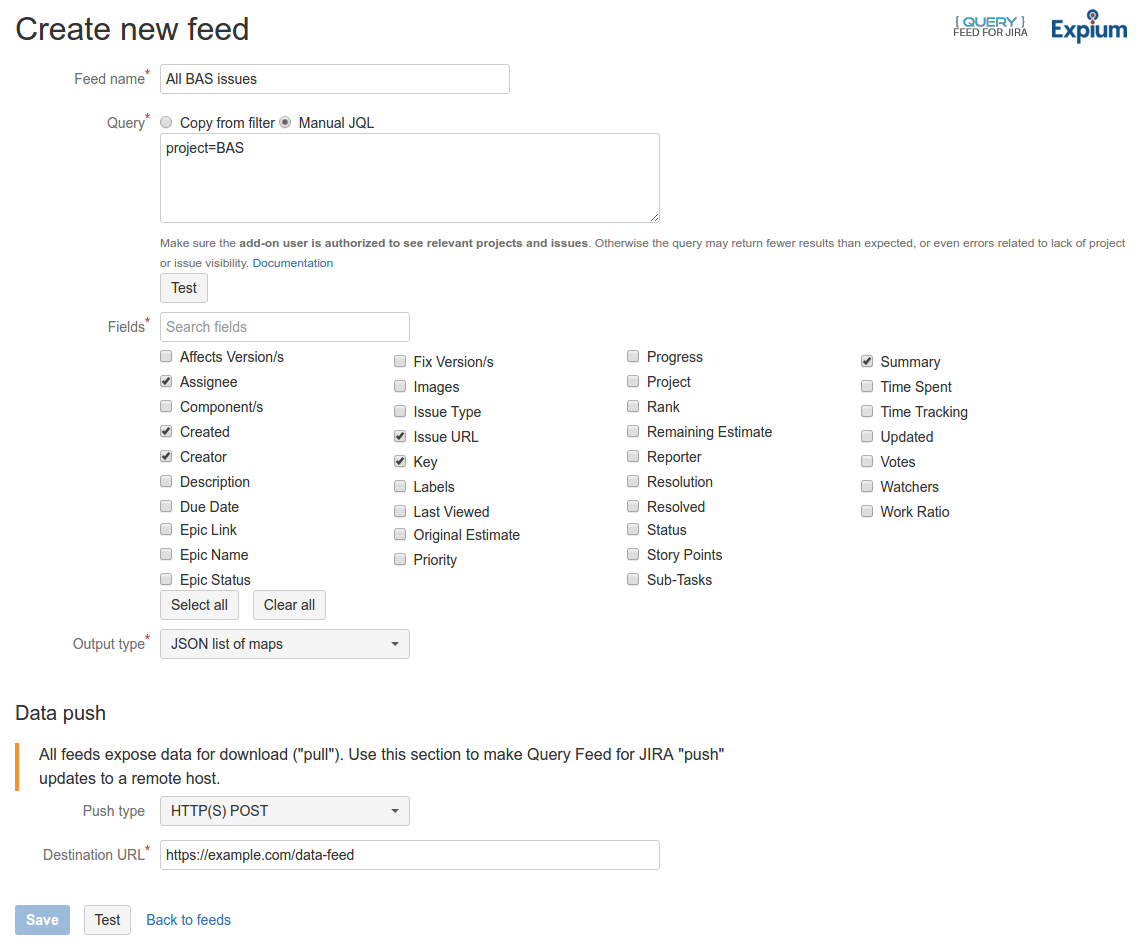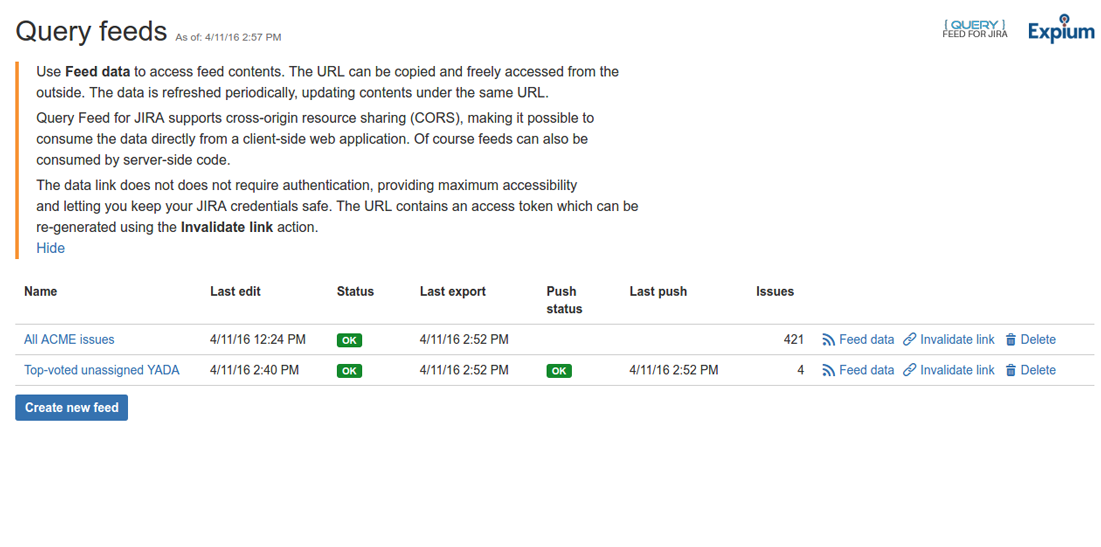Query Feed for Jira
Expose data from Jira issues as JSON feeds, which can be easily consumed by server- and client-side (even serverless) applications.
Jira data ➞ other systems
Many of us use Jira to manage complex interdependent operations, and this almost inevitably means Jira data is needed beyond Jira’s borders. For complex integration work, the native Jira API is very powerful — but it’s also tedious to consume because of its security model.

Simple data access for rapid integration
Query Feed for Jira solves problems by exposing just the data you configure, making it directly accessible from any application — and with security that protects without getting in the way. Query Feed for Jira can export data from Jira issues as JSON, CSV, or TSV. Thanks to its simple data and security model, it takes only a matter of minutes to configure a data source and use it in other applications, especially if they’re your own. Query Feed for Jira can publish any data from a JQL Query, making it available as as REST API.
Looking for Jira Cloud CORS?
As of early 2016, Jira Cloud does not serve CORS headers, which can be an irritating obstacle for some application ideas. However, Query Feed for Jira publishes the data you have configured with CORS headers so that it can be consumed directly from a client-side web application.
Configurability
Each feed is configured with a Jira query and a list of fields to export. Query Feed for Jira provides a URL to that data which automatically stays up-to-date. Depending on your security needs, the data URL can be consumed by server applications as well as directly by the client side.

Pull or push
In addition to publishing configured data to HTTPS URLs for “pull” consumption, Query Feed for Jira can also “push” updated data to an outside system via web hook. This add-on is currently available for Jira Cloud and Jira Server.
Query Feed Quick Demo
The Query Feed for Jira add-on exposes Jira issues as direct JSON, CSV or TSV resources. The data can be directly imported to a database, spreadsheet, or easily consumed with any application, server- or client-side.

Features
Expose Jira issue data to
your application
Control what fields are
included
Consume anywhere (supports
CORS)
Easy data and security model

